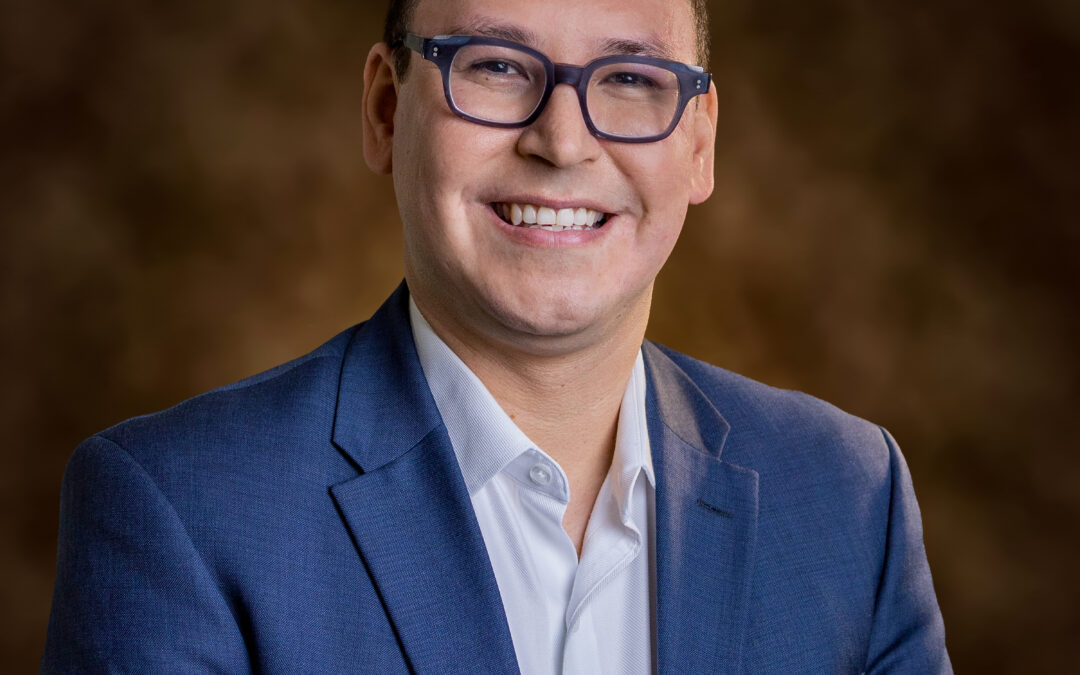When Nick Escobedo DNP, RN, OCN, NE-BC, director of Inpatient Oncology at Houston Methodist Hospital, started his nursing career, he didn’t expect to land in oncology nursing. During May’s recognition of Oncology Nursing Month, Escobedo says the career has offered distinctive opportunities for personal and professional growth.
“I went into a basic acute care setting right out of nursing school because I wanted to get a good, solid foundation for myself in practice,” Escobedo, a former president of the Oncology Nursing Certification Corporation, says. But the learning process opened up new, and appealing possibilities. “I had an opportunity to learn the skill of chemotherapy,” he says, “and the more I got to learn about it and spend time working with patients, I quickly learned this specialty was for me, and I wanted to do that full time. It chose me.”
What sets it apart from the science and the practice part of nursing, he says, is that cancer affects every body system. Oncology nurses treat patients through a span that lasts from cancer diagnosis to remission or to end of life.
“I got to use my critical thinking skills, and I got to have knowledge of all the latest and greatest therapies available,” he says. Escobedo, a dedicated lifelong learner, says it’s imperative that he stays on top of understanding new technology and the range of cancer drugs and treatment options available to patients and the safest ways to administer them.
Thankfully, oncology nursing is very collaborative, he says, and so nurses work with physicians, frontline providers, therapists, chaplains, nutritionists, clinical pharmacists, and volunteers to understand how the different pieces help drive the care of a patient. Escobedo says a nurse might check in with a clinical pharmacist to find out more about a particular drug to learn about interactions, how a patient might respond to it, and how to use it safely.
Additional education is essential for oncology nurses, he says. “My journey toward certification was big,” he says. “That was one of my ways at looking at my competence as a clinician, to say I was an expert in the care of oncology patients. So my journey to pursue that certification and have knowledge to be successful was key. I’m a big advocate for certification.”
To balance the intensity of understanding the drugs and treatments used for cancer, Escobedo says the relationships oncology nurses develop with their patients is special. “You develop long-term connections with patients and their family members,” he says. “They give so much of themselves.”
Those strong connections can help nurses and patients through the celebrations of successfully completing cancer treatment or the more difficult prognosis or outcome. “This is very hard work,” says Escobedo. “The reward is that we get to do that work, but we need to balance that with resilience. This is tough work and we have to promote and champion a little of that balance. We try to look at the celebrations that happen.”
The success stories are uplifting and have a lasting impact on nurses. “We hear from patients who were treated years ago, and they come back to check in,” he says. Patients relay news of celebrating weddings and anniversaries and the arrival of children and grandchildren. Some have even paid it forward and after being treated for cancer, have embarked on fundraising campaigns to help others.
“Our patients push us to have that drive,” he says, “And we see lots of really good outcomes.” Patients can go through treatment that is long term and so being able to go through the process with them is something oncology nurses find so rewarding, says Escobedo.
Escobedo encourages nurses who are interested in exploring oncology nursing to find a way. “If you think you could be good at it, why don’t you try it?” he says. Find good mentors and be sure to seek out projects and opportunities that will get you out of your comfort zone. “Nurses don’t get lots of oncology nursing experience through training or nursing programs,” he says. “This is a full and rewarding specialty.”
- WOC Nurses Week Highlights Specialty - April 16, 2024
- Honoring Radiology Nurses Day on April 12 - April 12, 2024
- Travel Offers New Career Possibilities - April 8, 2024



